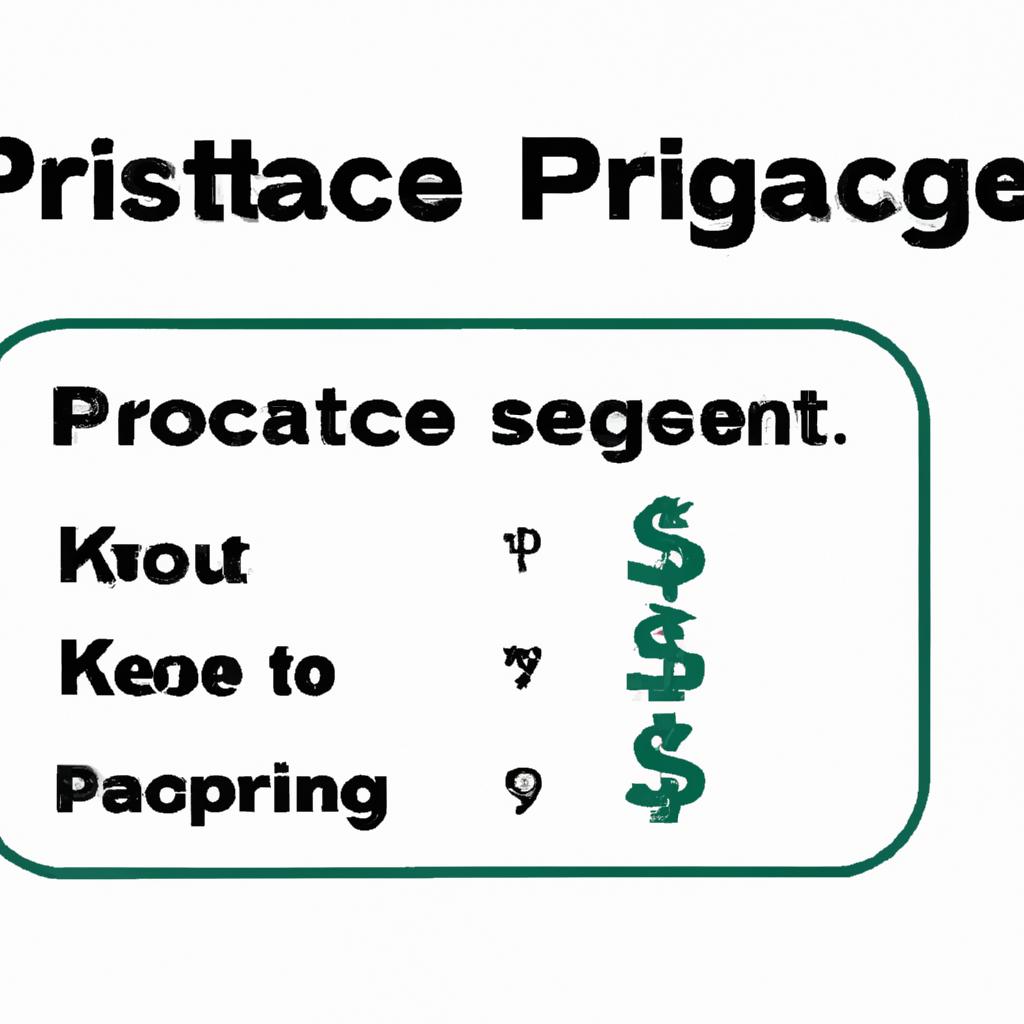In the intricate world of estate planning and probate, navigating the process of liquidating assets through an estate sale can be a daunting task. As experienced lawyers at Morgan Legal Group in the bustling metropolis of New York City, we understand the complexities and challenges involved in organizing and executing your own estate sale. In this article, we will provide you with a comprehensive guide on how to confidently and efficiently host your own estate sale, ensuring a seamless transition of your assets while maximizing returns. Let us guide you through the intricacies of this process, offering expert advice and valuable insights to help you successfully manage your estate sale with confidence and ease.
Strategies for Hosting a Successful Estate Sale
When it comes to hosting a successful estate sale, there are several strategies that can help ensure a smooth and profitable event. One key tip is to start by thoroughly organizing and decluttering the items in the estate. This will not only make it easier for potential buyers to browse and find items they are interested in, but it will also help maximize the sale’s overall profitability. Utilize proper marketing techniques, such as advertising in local newspapers, online classifieds, and social media platforms, to generate buzz and attract a large crowd of potential buyers.
Another important strategy is to price items competitively to encourage sales. Consider hiring a professional appraiser to help accurately price high-value items, while using unnumbered lists to group similar items together and offer bulk pricing discounts. Additionally, create a welcoming and organized sales environment by setting up tables and displays in a logical and aesthetically pleasing manner. Finally, be prepared to negotiate with buyers, as bargaining is common at estate sales and can help ensure that as many items as possible are sold.

Key Considerations for Pricing Your Items
When pricing your items for an estate sale, it is crucial to consider a variety of factors to ensure a successful and profitable event. One key consideration is to research the market value of each item to set a competitive price that will attract potential buyers. Take into account the condition, age, and rarity of the items, as well as current trends in the market. **Consult with experts or appraisers** if needed to accurately price valuable or unique items.
Another important factor to consider when pricing items for an estate sale is to be flexible and willing to negotiate. Set prices with room for bargaining to accommodate different buyers and maximize sales. Remember that the ultimate goal of the estate sale is to clear out the property and liquidate assets, so it may be necessary to adjust prices throughout the sale to ensure a successful outcome. Offer discounts for bulk purchases or towards the end of the sale to encourage sales and clear out remaining inventory.
| Item | Price | Discounted Price |
|---|---|---|
| Jewelry | $500 | $400 |
| Furniture Set | $1,200 | $1,000 |
| Artwork | $300 | $250 |

Implementing Effective Marketing Techniques
To successfully organize your own estate sale, it is essential to implement effective marketing techniques that will attract potential buyers and maximize your profits. One important strategy is to utilize online platforms such as social media, Craigslist, and estate sale websites to advertise your sale. Create visually appealing posts with detailed descriptions of items for sale, including photos and prices, to generate interest and drive traffic to your event. Additionally, consider listing your sale in local newspapers or community bulletin boards to reach a wider audience.
Another effective marketing technique is to leverage word-of-mouth advertising by informing family, friends, neighbors, and colleagues about your estate sale. Encourage them to spread the word and share your event details with their networks. Hosting a preview sale for select individuals or offering early bird discounts can also help create buzz and generate excitement among potential buyers. Remember to clearly display signage directing visitors to your sale location and provide ample parking to ensure a smooth and successful event. By implementing these marketing strategies, you can increase visibility, attract more buyers, and achieve successful results from your estate sale.
Navigating Legal and Financial Aspects of Estate Sales
In order to successfully navigate the legal and financial aspects of estate sales, it is crucial to follow a detailed and organized process. One important step is to consult with a knowledgeable estate planning attorney to ensure that all legal requirements are met. This includes determining the value of the estate, understanding tax implications, and creating a plan for distributing assets to beneficiaries.
Additionally, it is essential to conduct thorough research on the market value of items within the estate in order to accurately set prices for the sale. Hiring a professional appraiser can help in determining the fair market value of valuable assets such as jewelry, art, and antiques. Creating a detailed inventory of all items for sale, as well as a marketing plan to attract potential buyers, will help ensure a successful estate sale. By following these steps and seeking professional guidance, individuals can effectively manage the complexities of estate sales with confidence and ease.
Q&A
Q: What is an estate sale?
A: An estate sale is a way to liquidate the belongings of a household, typically after a major life event such as a move, downsizing, or death.
Q: Why would someone have an estate sale?
A: Estate sales are a way to make some extra money from items you no longer need or want, as well as to clear out a household quickly and efficiently.
Q: How do I prepare for an estate sale?
A: To prepare for an estate sale, you’ll need to sort through your belongings, price items, advertise the sale, and set up the space for customers to browse.
Q: How can I maximize profits at an estate sale?
A: To maximize profits at an estate sale, it’s important to price items fairly, attract as many customers as possible through effective advertising, and be prepared to negotiate prices with buyers.
Q: What should I do with items that don’t sell at the estate sale?
A: If items don’t sell at the estate sale, you can consider donating them to charity, selling them online, or hosting a follow-up sale to try to sell them again.
Q: Do I need to hire a professional estate sale company?
A: While hiring a professional estate sale company can make the process easier, it’s possible to have a successful estate sale on your own with proper planning and organization.
In Conclusion
As you prepare to host your own estate sale, remember to take the time to plan and organize with care. By following these steps and staying organized, you can turn your unwanted items into someone else’s treasure. From setting prices to promoting your sale, you have the power to make this experience a success. So, go forth and sell with confidence, knowing that you are on your way to decluttering your space and making a little extra cash in the process. Good luck with your estate sale endeavors!







